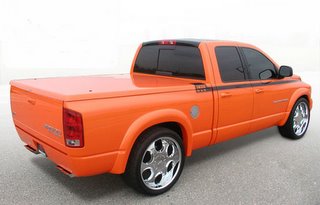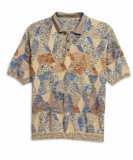In a Citable Decision, TTAB Cancels Three "TUNDRA" Registrations on the Ground of Fraud
Canadian clothing maker Standard Knitting was run over by a Toyota Tundra in its attempt to block the Japanese car maker's registration of the mark TUNDRA for "automobiles and structural parts thereof." The Board, in its first citable decision of 2006, cancelled the three registrations relied on by Standard, finding that Standard's false statements to the PTO regarding use of its marks on certain clothing items constituted fraud. The Board also dismissed Standard's common law-based likelihood of confusion claims in view of the vast differences between the goods of the parties. Standard Knitting, Ltd. v. Toyota Jidosha Kabushiki Kaisha, 77 USPQ2d 1917 (TTAB 2006).

Fraud: Not since Medinol Ltd. v. Neuro Vasx Inc. in 2003 has the Board rendered a citable decision on the issue of fraud. However, in a number of non-citable decisions it has made it clear that false statements to the USPTO are not excusable and indeed render an application void ab initio and a registration invalid in its entirety. Perhaps the Board felt it was again time to send its message in citable form.
Opposer Standard's three registrations for the marks TUNDRA and TUNDRA SPORTS listed various men's, ladies' and children's clothing items. Discovery revealed that, when Standard filed its two underlying use-based applications and when it filed its Statement of Use in the third application, it had not used the marks on "at a minimum, most, if not all, of the items of children's clothing identified in each of the three registrations." Under applicable precedent, that clearly constituted fraud.
Standard claimed that the false statements were the result of honest mistake rather than fraudulent intent, that it did not understand the term "use in commerce" and thought it meant "made or sold," and that it "had a reasonable belief, after making inquiries, that the marks were being used with the listed goods." The Board was unmoved:
"Mr. Groumoutis's asserted mistake, assuming it truly was a mistake, was not a reasonable one. The language in the application that the mark 'is now in use in commerce' is clear and its meaning is unambiguous. It was not reasonable for Mr. Groumoutis to believe that if the items of clothing were ever made or sold, even if the last sale took place 20 years ago, it would support a claim that the mark 'is' in use on the goods."
Moreover, the Board ruled, Opposer's claim of innocence was not credible. Even if Mr. Groumoutis believed that "use" meant "made," he could not have believed that the marks were used in the United States because Opposer's clothing items were not made in the United States. "This is not a situation where opposer misunderstood the significance of the statement it signed. Rather, opposer disregarded the significance."
The Statement of Use was signed by a person who had "no idea which, if any, of the listed items were being sold in the United States," thus evidencing a "reckless disregard for the truth."
The Board noted that "proof of specific intent to commit fraud is not required, rather, fraud occurs when an applicant or registrant makes a false material representation that the applicant or registrant knew or should have known was false. General Car and Truck Leasing Systems, Inc. v. General Rent-A-Car, Inc., 17 USPQ 1398, 1400 (S. D. Fla. 1990)." Getting to the nub of the matter, the Board declared:
"It is important to note that the United States Patent and Trademark Office relies on the thoroughness, accuracy and honesty of each applicant. In general, the Office does not inquire as to the use of the mark on each good listed in a single class and only requires specimens of use as to one of the listed goods, relying on applicant's declaration with regard to use on the other listed goods. TEMP Sections 806.01(a) and 904.01(a) (4th ed. 2005). Allowing registrants to be careless in their statements of use would result in registrations improperly accorded legal presumptions in connection with goods on which the mark is not used."
The Board therefore ordered that the three registrations be cancelled in their entireties. [In the alternative, the Board ruled that, should its fraud ruling be overturned on appeal, the registrations will be restricted to delete from the registration the "offending" goods.]
Likelihood of Confusion: Because the fraud ruling affected only the registrations, Standard was entitled to proceed on its common law rights vis-a-vis its Section 2(d) claims. The Board rejected Standard's contention that its marks are strong and instead found them suggestive of clothing products.
 As to the goods, the Board found "no persuasive evidence that ... purchasers would expect these vastly different goods to emanate from the same source." Standard submitted a number of third-party registrations for marks registered for both clothing and automobiles, but the Board gave the registrations little weight:
As to the goods, the Board found "no persuasive evidence that ... purchasers would expect these vastly different goods to emanate from the same source." Standard submitted a number of third-party registrations for marks registered for both clothing and automobiles, but the Board gave the registrations little weight:"Third-party registrations are not proof of sales of the products shown therein; nor are they evidence that the marks shown therein are in use or that the public is familiar with them, or even aware of them. See AMF Inc. v. American Leisure Prods., Inc., 177 USPQ 268 (CCPA 1973)."
Furthermore, the Board noted, the goods of the parties are sold in completely different marketing channels. Standard contended that the channels overlap because "both parties market their products over the Internet." It proffered printouts from eBay showing that clothing and vehicles may be found at that website; the Board observed, however, that entering the word "tundra" into the eBay search engine yields "a randomly ordered listing of hundreds of 'tundra' goods, including cars and car parts, clothing, duck decoys, cereal bowls and underwater photo equipment" This is "clearly not proof that all these goods move in the same channels of trade or that they would be perceived as emanating from a common source."
Finally, the Board pointed out that Toyota's automobiles are expensive and would be purchased only after careful consideration, thus reducing the likelihood of confusion.
The Board therefore dismissed the opposition.
TTABlog comment: The fraud ruling in this case was fairly straightforward and inevitable under the facts at hand. The Section 2(d) discussion is noteworthy because of the Board's downplaying of the significance of the third-party registration evidence. Of course, Examining Attorneys cite third-party registrations all the time under Albert Trostel/Mucky Duck to establish the relatedness of goods and/or services. This decision may be of some help in reining in an overly-aggressive Examining Attorney who runs amok with Mucky Duck.
Text Copyright John L. Welch 2005.




0 Comments:
Post a Comment
<< Home